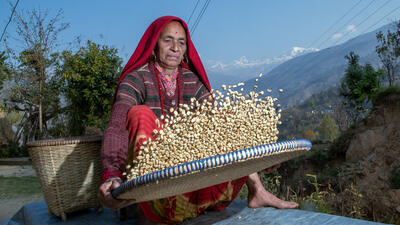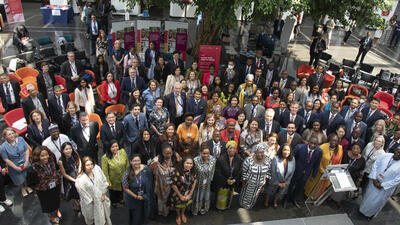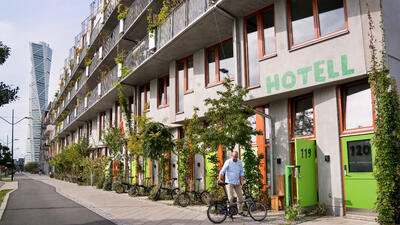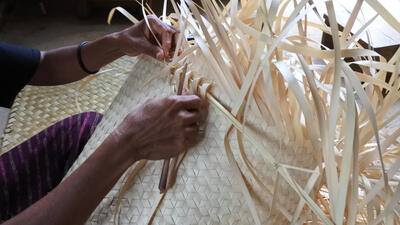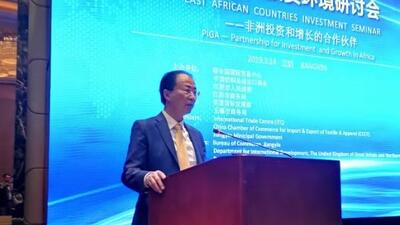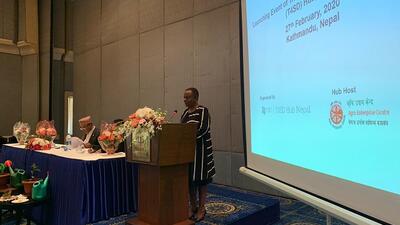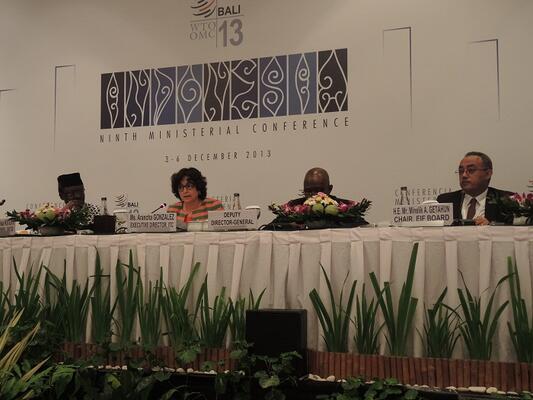
LDCs ministers, donors discuss future of EIF (en)
(BALI, INDONESIA) — Least developed countries (LDCs) and trade officials called for the extension of the Enhanced Integrated Framework (EIF), whose current mandate expires in 2015 at a session of LDC trade ministers moderated by Arancha González, Executive Director of ITC. The session was held on the margins of the Ninth World Trade Organization (WTO) Ministerial Conference in Bali, Indonesia today.
“We should use this meeting in Bali to start a process of reflection to determine what the EIF would require both financially and structurally beyond 2015. We need to start thinking about an EIF version 2,” Ms. González said. “The needs of LDCs are becoming more sophisticated.”
The EIF is a $US 250 million programme that assists the integration of LDCs into the global trading system, increasing their exports and generating trade-based economic growth.
Funding, however, is now running short. “We have now reached a status where funds available do not cover the cost of projects in the pipeline. We thus count on development partners to provide the resources based on commitments made to make trade work for national development,” said Minelik Alemu Getahun, Chair of the EIF Board and Ambassador of Ethiopia to WTO, adding that “we also count on LDCs to better integrate trade into national development plans.”
“The EIF has been a useful vehicle for LDCs to mobilize Aid-for-Trade funding,” said Shanker Prasad Koirala, Nepal’s Minister of Commerce and Supplies, and coordinator of the LDC group.
Part of the package ministers are debating in Bali concerns LDC-specific issues, said Yonov Frederick Agah, Deputy Director-General of the WTO. EIF will remain relevant to channel additional Aid-for-Trade funding to LDCs, including in the area of trade facilitation, he said. Trade facilitation, the simplification of border procedures, is the most important pillar of the agreement under negotiation in Bali. “I invite ministers to extend the mandate of the EIF beyond 2015,” Mr. Agah said.
The starting point of EIF’s contribution to the post-2015 development agenda is to create productive capacity, an area in which efforts need to be redoubled, said EIF Executive Director Ratnakar Adhikari. Focus areas need to include skill development, particularly for SMEs and small scale farmers, improvements in access to finance, technology and in the business climate, he said.
EIF is invaluable in delivering concrete solutions to concrete problems, particularly lack of jobs, said Mukhisa Kituyi, Secretary-General of the United Nations Conference on Trade and Development (UNCTAD). “The unemployed of 2030 have already been born,” he said. “We need concrete policy measures and we need to implement them. The EIF is a policy instrument, which can enable us to achieve our ambitious goals.”
Finland, Denmark, Sweden, the United States and the European Union also expressed support for the EIF at the meeting. Representatives of the three Nordic countries have announced that they would pledge support in coming days. At the same time they also called for an evaluation of the programme before its future is determined.
Ministers expressed their support for the implementation of the findings of a recent evaluation, including greater domestic coordination in the implementation of projects in order to exploit efficiencies. “The EIF mid-term review has called for greater coordination and we must implement the findings,” Mr Koirala of Nepal said.
“We need to find an intelligent way to marry the increase in requests from LDCs, the fact that funding is running out and the upcoming evaluation of the EIF,” said Ms. González in closing the meeting.





